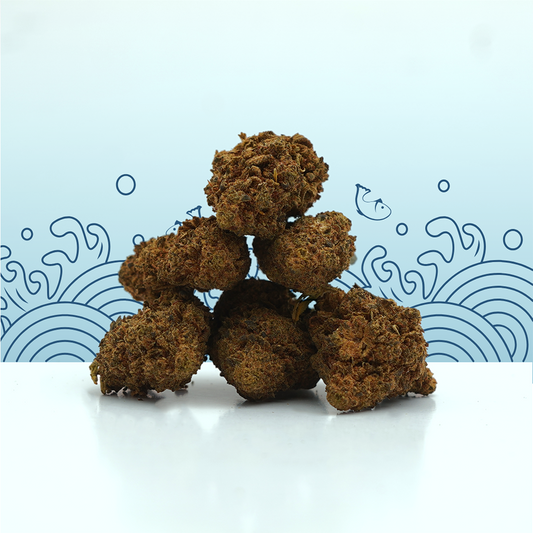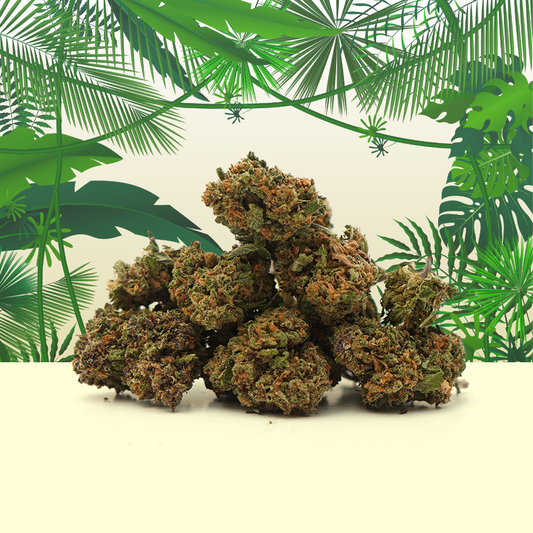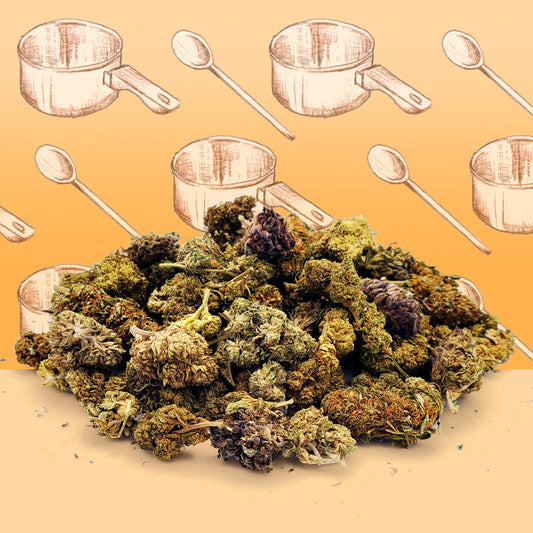There are several ways to grow CBD and some methods, such as bioponics, are becoming increasingly popular. This technique, derived from hydroponics, enables plants to be grown without soil and enriched with organic elements only. But what are the advantages of bioponics for CBD cultivation? Mama explains.
To remember
- Cutting-edge, on-trend culture aligned with today's agricultural and ecological challenges.
- A healthy, organic solution for exceptional CBD quality.
- A 100% natural approach that uses organic fertilizers as a nutrient solution to encourage the development of micro-organisms.
Mama explains biopony culture
The bioponic method is based on soil-less cultivation such as hydroponics or aquaponics. What sets it apart, however, is its 100% organic and natural approach. Instead of using synthetic chemical fertilizers, bioponics relies on organic fertilizers such as :
- compost juices,
- earthworm teas,
- plant slurries,
- and even human urine.
These nutrients are diluted in a non-sterile nutrient solution, encouraging the development of micro-organisms, bacteria and fungi beneficial to plant growth. This small ecosystem reproduces the natural conditions of fertile soil.
The advantages of bioponics for CBD cultivation
1. An ecological method
Against a backdrop of depleting agricultural soils, bioponics is positioned as an environmentally-friendly solution. Unlike conventional agriculture, it requires no arable (farm) land, which limits the overexploitation and taming of micro-organisms in the soil. It's also a technique that requires less water than conventional farming. This can be an invaluable asset in the fight against drought and water restrictions. By replacing chemical fertilizers with organic nutrients, bioponics also reduces the environmental impact of pesticide production and use. It's a method that combines agricultural performance with respect for the planet.
2. Better productivity
Bioponics outperforms hydroponics. For example, one study showed that the yields of bioponics and aquaponics (another biological method using fish) are around 46% higher than those of hydroponics.
This favorable result is explained by the richness and balance of nutrients present in the organic nutrient solution. For CBD, this means healthier plants, with faster growth, denser flowers and higher cannabinoid content.
3. Good quality CBD
Bioponically grown CBD benefits from natural nutrients, resulting in exceptional flower quality. The plants develop extremely rich aromas and terpenes that are essential for maximizing the benefits of CBD.
This results in high quality flowers. And that's not all: the absence of chemicals guarantees that CBD is pure and free from harmful residues, a criterion increasingly sought after by consumers concerned about their well-being.
4. Optimized resource management
In biopony, everything is designed to optimize resources. Water is recycled and reused, considerably reducing waste. What's more, the nutrient solution is precisely adjusted to the needs of the plants to avoid wasting nutrients. For CBD growers, this means that budget costs can be reduced without compromising on quality.
5. An alternative for local culture
With the growing demand for CBD, conventional farming methods can quickly reach their limits. Bioponic installations can be set up in urban areas, arid regions or even confined spaces to expand CBD growing areas. This paves the way for local farming, limiting the costs and impact of transport and importation.
Bioponics is more than just a trend, it's a revolution in the world of CBD cultivation. By combining respect for the environment, economic performance and product quality, it meets today's agricultural challenges and consumer expectations.




![Banana Cream CBG 🍌 [Greenhouse]](http://mamakana.com/cdn/shop/files/banana.jpg?v=1683038126&width=533)
![Bubba Kush CBD 🫧 [Greenhouse]](http://mamakana.com/cdn/shop/files/Bubba_fond_4b55b9bd-2083-406f-8843-1229994bb3ec.png?v=1738679473&width=533)




